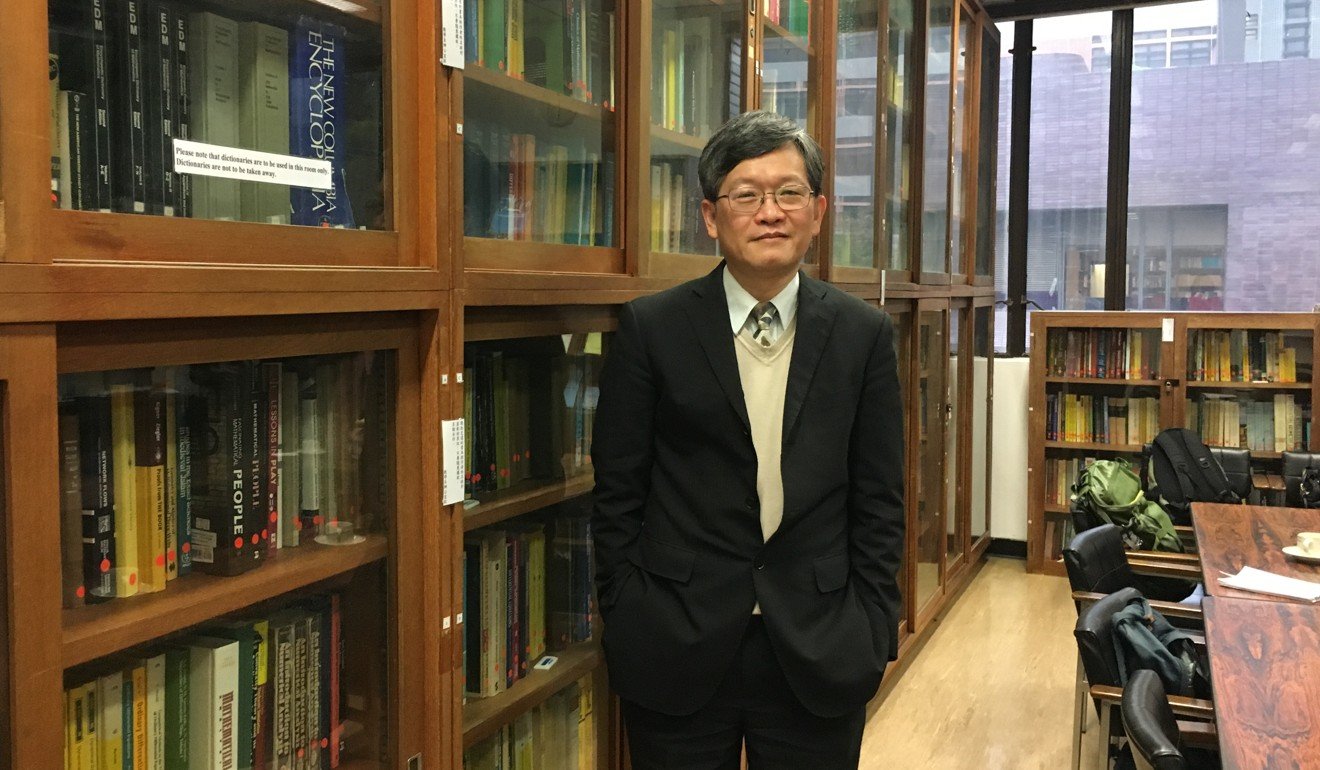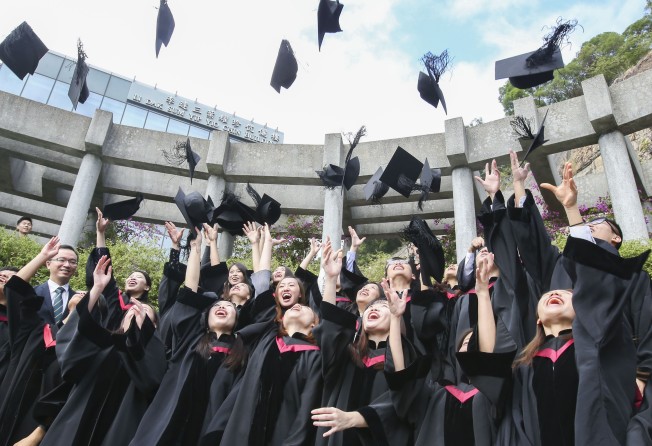
Don’t overlook maths and science, top Hong Kong mathematician warns educators, urging space for children to develop interests
Advocates say less priority on such subjects and fears over job prospects endanger bid to develop city’s technology sector

A renowned Hong Kong mathematician on Monday urged the government to provide more science-related jobs and scholarships, saying that parents should also allow space for their children to discover their interests and potential.
The comments by Professor Mok Ngai-ming come as scientists have warned of fewer local pupils opting for maths and science subjects, a trend they said would endanger the government’s bid to boost the technology sector.
The field of advanced mathematics has been worst hit with the number of day-school candidates taking extended modules for the Diploma of Secondary Education examination dropping to 6,776 last year from 15,438 in 2012, the first year of the examination.
Critics blamed the reformed education system, which they said prioritised arts subjects, and society’s perception that there were not many job prospects for those pursuing science.
Meeting the media for the first time since being recently elected as a member of the Academy of Sciences of Hong Kong, Mok expressed hope for more universities to recognise extended maths modules as electives for admission. He cited a worldwide trend in the importance of the subject in other disciplines, and its connection to science.
“There is a need for mathematical knowledge in fields like biology,” he said. “For example, in bio-informatics, you need high-level maths to draw conclusions from data generated by software.”
Mok, who is also the chair of mathematics at the University of Hong Kong, said he noticed a drop in the maths standard of local secondary pupils, with fewer of them taking advanced modules.
Before an education reform in 2009, maths electives were recognised by local universities for admission, but under the DSE system, only certain schools and courses counted the extended maths modules as electives.

They are the only two further maths components available for pupils besides the mandatory maths subject, which educators said provided only basic knowledge.
Mok noted that Hong Kong students had a good foundation in maths, with the city performing consistently well in international rankings as well as competitions such as the International Mathematical Olympiad.
The city placed second in mathematical literacy for the Programme for International Student Assessment 2015, a worldwide study on students’ abilities in fields such as maths, science and reading.
Mok said he believed that some pupils who might have potential and interest in maths would still not choose the path because of reservations over job prospects.
He urged the government to increase expenditure on education and research, create more higher-level science-related jobs, such as those in information technology, and fund more scholarships for young people to study overseas.
He suggested that the scholarship plan could come with a bond for holders to serve in Hong Kong upon graduating – similar to the system in Singapore.
Mok also urged parents to dial back on after-school activities for their children to give them more space to develop their interests.
“I became determined to become a mathematician in primary school as I had a lot of freedom growing up to pursue my interest,” he said.
Mok came from a government primary school in Hong Kong before going to a top secondary school and getting a scholarship for a university education in the United States.